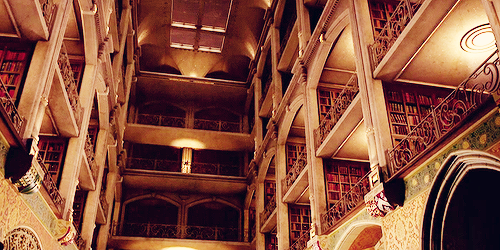The name I chose is the Doctor. The name you choose, it's like, it's like a promise you make. He's the one who broke the promise.
I'd heard rumors of John Hurt's character before this episode, but I filed it away, more concerned with River's gravestone and Clara's identity. After all, he wouldn't be showing up until the anniversary special. Figures. I should have known better than to trust Moffat. And if I thought the summer between GMGTW and LKH was bad, this will drive me doolally. Who is he?
Because we’re not sure where the John Hurt character comes, and his actions were/are/will be so horrible that he renounces the title of Doctor, all posts related to him will be tagged Echthros, a Greek word for Enemy used for the nihilist destroyers in Madeline L’Engle’s Time Quartet. I think it’s also appropriate because the emphasis in that series is on Naming, and this incarnation lost his right to the title of the Doctor, having to go by his old name.
The following conversation is all we have to go on:
Clara: Who is he?The Doctor: He's me. There's only me here, that's the point. Now let's get back. Clara: But I never saw that one. I saw all of you. Eleven faces. All of them you. The Doctor: I said he was me. I never said he was the Doctor.Clara: But I don't understand.The Doctor: My name, my real name, that is not the point. The name I chose is the Doctor. The name you choose, it's like, it's like a promise you make. He's the one who broke the promise. Clara? Clara! He is my secret.The Old Man: What I did, I did without choice. The Doctor: I know.The Old Man: In the name of peace and sanity. The Doctor: But not in the name of the Doctor.This one "broke the promise." The immediate association is the Time War, implying that Ecthros came between McGann and Eccleston. But the Doctor has spoken of the Time War, though never in detail, and though he committed at least double-genocide, the implications that Nine ended the war are difficult to overcome.
He could also be the Valeyard, who came between the Doctor's "twelfth and final" regeneration. He appeared during the "Trial of a Time Lord" arc in Six's final season, but his actions in that serial are reduced to threatening Six in an attempt to steal his remaining regenerations. It was also stated that he was the Doctor's dark side. But if Ecthros is the Valeyard, how would Eleven know precisely what Ecthros did?
These theories seem most likely to me. I doubt Echtros is a pre-Hartnill incarnation, because how could one break the promise of a name that has not yet been used (in the EU, "Doctor" is a pseudonym chosen early in his adventures, and even in the revived series, the Master confirmed that the Doctor chose his name.)
The statement "he is my secret" is also intriguing. Generally, a secret is something you know that you don't want anyone else to know. I don't think Eleven's forgotten Echtros--this seems inconsistent with his behavior towards the man. The Doctor has disowned Echtros, but has not forgotten him.
Finally, what did Ecthros "in the name of peace and sanity?" As I said earlier, the most obvious answer is the Time War. We've already heard suggestions of horrible events, from Armies of Meanwhiles and Never-Weres to the simple statement "I couldn't save any of them." But the Doctor has claimed the end of the Time War--hated to do so, but he's admitted to those actions. Even Eleven says "I killed all of them [Time Lords]," which seems out of place with claiming those same actions were "not in the name of the Doctor."
On the other hand, there have been allusions that suggest a bloodstained past for him. The writing on the Pandorica, the references to him as a "great warrior;" it all seems to be adding up to something, Another intriguing clue is his statement in Beast Below that if he lobotimizes the Star Whale, he'll "find a new name, because [he] won't be the Doctor anymore."
The Doctor is a "word for healer and wise man throughout the universe," as River says at Demons Run. His greatest value, his core ethic, is a concern for sentient life and individual freedom. Something that could have made him lose/renounce that name probably involved a deliberate act of murder, but even more, the force of an action against someone else's will. My money is on something like what Jack did to Stevie in Children of Earth (No, I haven't watched it. No, I don't recommend it.)--killing an innocent who trusted him in order to save others. The Doctor is willing enough to sacrifice himself, but Ecthros would force that death "for the greater good."






